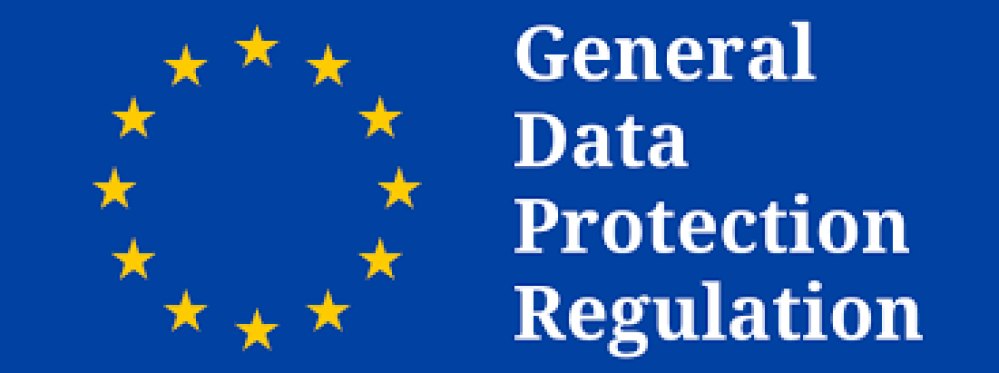The GDPR is good for your business (trust us!)
16 Jan 2017

The General Data Protection Regulations (GDPR) come into effect in May 2018, and its a hefty set of wide-reaching reforms. But don't panic - the GDPR is a great opportunity to make data work harder and more effectively for your business.
Firstly, these are some of the key ways the GDPR will affect you:
- Individuals will need to give “unambiguous and provable” consent to their data being used for marketing purposes – a tick-box to opt out will no longer be enough. Customers will need to actively opt-in to marketing communications with a clear understanding of what they’re agreeing to.
- Companies will need to inform those individuals of what they plan to do with the data, the measures they will take to protect it, and how long they will keep it.
- New regulations apply to anyone controlling or processing personal data pertaining to EU Citizens.
- Individuals have the “right to erasure”, meaning they can opt out at any time, at which point all their data will need to be deleted.
- The penalty for failing to comply with the regulations is 4% of global annual turnover or €20 million, whichever is greater.
Further details on the GDPR
At first glance, many marketers have worried that this means they will be able to gather less data, data they have gathered will be lost, and that data will be less widely available as companies won’t have consent to pass on customer data.
Would you believe us if we told you that this will actually be good for your business?
High quality, better qualified data sets
We have previously looked at some of the main reasons your leads are not converting, and large amounts of unqualified data and lack of a structured sales funnel are two of the biggest impacts on your conversion rate. Tighter controls on data gathering will help ensure that your data is of higher quality. Equally, easier opt-out processes for customers mean that your data will be better maintained and cleaner.
Targeted and aligned
Marketing to lower volumes of data means cost savings for your organisation, and, as you’re talking to a more engaged and receptive audience with more targeted messaging, you will see an improved ROI from higher value sales and an increased lifetime value. Most marketing automation platforms price based on volume, either number of records or number of emails. In this context, marketing only to contacts and companies receptive to your message must make sense.
Valued and consensual communication
Individuals are more fed up than ever of constant unsolicited marketing messages. At a time when so many are turning to ad blockers, increasing their privacy settings and turning their spam filters up to 11, ensuring that your customers know precisely what they’re signing up to and what they can expect from you will ensure that your marketing messages will reach people who are genuinely interested, rather than lining junk folders.
Trust and privacy as a brand asset
Marketing messages to people who want to hear them, and not to those who don’t, will improve your reputation and provide better customer experiences, meaning a higher retention rate and lower cost per acquisition, not to mention increased customer satisfaction.
A genuine growth opportunity
So how do you get to this pure and harmonious state of data nirvana? There’s no doubt there’s work to be done, but here are a few things you can do to convert what might seem like a data compliance headache into a genuine opportunity for business growth.
Data Maintenance and Management
- Carry out an audit and data refresh exercise targeting your highest value prospect and customer segments. By using telephone research to cleanse and enhance, you can simultaneously capture marketing opt-ins and consent, as well as customer communication preferences.
- Treat your data as an asset to be maintained on ongoing basis, rather than a commodity to be thrown away and replaced. Buying new lists in the search for your elusive prospect, whilst your old data falls into decay, won’t be an easy option. Post GDPR, with new rules around consent, the number of good quality, opted-in lists will shrink.
- Give one person responsibility for championing data integrity and best practice across the organisation.
- Consolidate your data into a single, shared customer view that will support a truly customer-centric approach from all angles of your business.
Lead Qualification Process
- Enhance lead qualification, to supplement tighter data capture processes, so that the quality of data is maintained throughout the pipeline. Don’t rely exclusively on computer assisted scoring to qualify your leads – the human touch is needed to understand the client’s interests and ensure that your sales resource is focused only on genuine opportunities.
- Use that same human interaction to gather deeper insight around your customer’s challenges and pain points. This will not only help you build a closer relationship, but will increase your sales team’s ability to convert leads.
Build Relationships
With a clearer customer view, adopt a more strategic account-based sales and marketing approach, engaging at a deeper level with the companies that have the highest potential lifetime value.
Stay in regular contact with these customers, don’t focus only on sales transactions – build a relationship over time to increase their lifetime value and use the two way dialogue, and insight it provides to build trust and understanding.
Finally, don’t feel you have to do all this alone. We can help you to cleanse your data, secure email opt-ins, qualify your leads, and build relationships with the customers who count. If you’d like to discuss the ways we can support you, please get in touch.

Please login to comment.
Comments